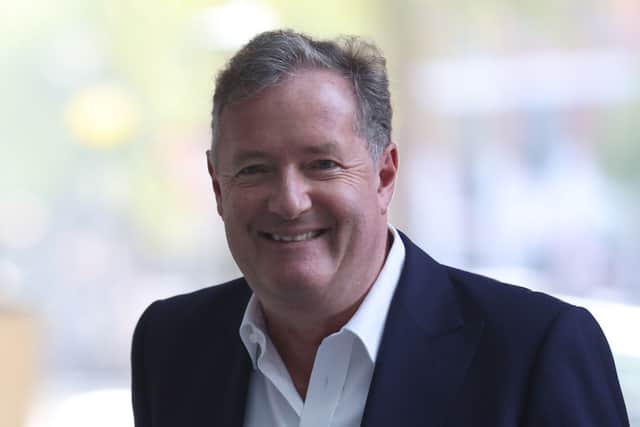Prince Harry hacking trial: Mirror Group newspapers accused of 'flood of illegality'


The first day of the phone hacking trial involving Prince Harry and Mirror Group Newspapers (MGN) has concluded in London, with the royal accusing the newspaper publisher of fostering an environment which allowed a "flood of illegality" in their newsrooms.
The Duke of Sussex, who recently appeared in court for a similar case against Daily Mail publisher Associated Newspapers Limited (ANL), is among a number of high-profile figures accusing MGN of allowing its journalists to gather information illegally, including through phone hacking. Those expected to give evidence during the trial include Coronation Street actors Nikki Sanderson and Michael Le Vell, as well as comedian Paul Whitehouse’s ex-wife Fiona Wightman.
Advertisement
Hide AdAdvertisement
Hide AdMGN - which publishes titles including The Mirror, Sunday Mirror, and Sunday People - is being accused of allowing a range of unlawful information gathering techniques to take place at their news outlets, including voicemail interception, securing information through deception, and hiring private investigators for unlawful activities.
The group has “unreservedly apologised” for instances in which unlawful gathering of information did take place, but has contested some of the claims - stating for instance that there is “no evidence, or no sufficient evidence" of voicemail interception.
David Sherborne, barrister for the case against MGN, told the court on the first day of the trial that unlawful techniques were used in their newsrooms on an “industrial scale”, adding that it took place “over a period of about 20 years or so.” Mr Sherborne told the court: “It was a flood of illegality. But worse still, this flood was being authorised and approved of by senior executives.”
The barrister said that Prince Harry's claim against the publisher pertained to a period between 1995 and 2011, citing the media's interest in the marriage of his father, then-Prince Charles and Diana, Princess of Wales.
Advertisement
Hide AdAdvertisement
Hide Ad“From that moment on, as a schoolboy and from his career in the army and as a young adult he was subjected, it was clear, to the most intrusive methods of obtaining his personal information," Mr Sherborne told the High Court. “Prince or not, the blatantly unlawful and illegal methods used by the defendants… was quite frankly appalling. No one should be subjected to that.”
Andrew Green KC, barrister for MGN, said that the publisher had denied the majority of the alleged cases of unlawful information gathering in Prince Harry's claim. MGN denied that unlawful gathering techniques were used in 28 of the 33 articles, telling the court that information in these stories came from sources close to the family.
He said: “Many came from information disclosed by or on behalf of royal households or members of the royal family; from information and photographs sold to the newspaper by freelance journalists and news agencies, photographers and photography agencies; others from confidential sources, including sources with extensive royal contacts, prior reports in the public domain and, in one case, from an on-the-record interview given by the Duke of Sussex himself.”
In addition to this, five of the articles included in the claim were "not admitted" to have been sourced via unlawful methods. Mr Green also said that 29 of the articles in Prince Harry's claim could not be awarded damages as these stories were in the public interest, including the Royal Family response to Prince Harry dressing up as a Nazi at a fancy dress party in 2005.
Advertisement
Hide AdAdvertisement
Hide AdHowever, MGN did apologise to Harry "unreservedly" for one instance of unlawful gathering. In 2004, a journalist at MGN outlet The People instructed a private investigator - who was paid £75 according to payment records - to unlawfully gather information on Prince Harry and his activities at the Chinawhite nightclub in London.
Mr Green said: “It is admitted that this represented an instruction to engage in unlawful information gathering, and MGN unreservedly apologises and accepts that the Duke of Sussex is entitled to appropriate compensation for it. MGN does not know what information this related to, although it clearly had some connection with his conduct at the nightclub.”


The court also heard that Piers Morgan, who has long been critical of Prince Harry and his wife Meghan Markle, was aware of illegal phone hacking when he was editor of the Daily Mirror between 1995 and 2004. Barrister Mr Sherbourne alleged it was “inconceivable” that Mr Morgan did not know about journalists instructing private investigators to obtain information - claiming he “must have known” about illegal activity.
According to legal filings:
- In one alleged incident, Mr Morgan asked a journalist to name the source of a celebrity story and was told “the information had come from voicemails”
- On another alleged occasion, a witness described how Mr Morgan was “laughing mockingly” as he entertained the Daily Mirror newsroom by repeatedly playing a private voicemail which Paul McCartney had left for his girlfriend at the time, Heather Mills
- A witness also claimed that Mr Morgan knew the “default pin codes” that could be used to illegally access voicemails on different mobile phone networks
Mr Morgan, now a presenter on Rupert Murdoch’s TalkTV, has always denied knowingly commissioning or publishing stories based on illegally obtained voicemails. Speaking before the trial, he commented: “I’ve never hacked a phone. I’ve never told anybody to hack a phone.”
Advertisement
Hide AdAdvertisement
Hide AdIn an interview with the BBC, Mr Morgan said he thought phone hacking was completely wrong, “shouldn’t have been happening”, and was down to “lazy journalists being lazy”. He also argued there was no evidence that he knew anything about it.
Comment Guidelines
National World encourages reader discussion on our stories. User feedback, insights and back-and-forth exchanges add a rich layer of context to reporting. Please review our Community Guidelines before commenting.
